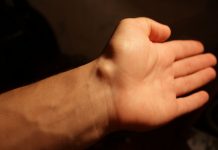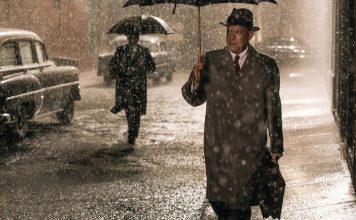The right book on psychology can not only expand the boundaries of knowledge, but also have a healing effect on the reader. There are a lot of such books. The list below presents only a few of them.
"Psychoanalytic Diagnostics", Nancy McWilliams
This book was written by a practicing psychoanalyst, Ph.D., author of numerous papers, Nancy McWilliams. In her work, she describes the personality types and levels of her organization. In her interpretation, dry scientific theories come to life and take shape. Also from the book you can learn about the methods of diagnosis and psychological protection. McWilliams argues that early diagnosis is of paramount importance. Only in this case it is possible to create an effective treatment program. Also here you can find specific working recommendations for working with clients.
"Existential psychotherapy", Irvin Yalom
Irwin Yalom has over half a century of experience.In his book, he tells about the existential reality and the role of man in it, as well as the role of this reality in psychotherapy. The author highlights 4 given:
- death;
- meaninglessness;
- loneliness;
- freedom and responsibility.
The main material of the book is devoted to the protective mechanisms associated with each of these givens. Here you can learn about examples from practice and explore therapeutic strategies. At the first stage of reading the book, most likely, will stir up unpleasant emotions. But in the future, she will teach to contact painlessly with the themes of death, loneliness and meaninglessness and will make the reader stronger and bolder.
“Memories, dreams, reflections”, Karl G. Jung
Karl Gustav Jung is a famous Swiss psychoanalyst. Psychology is obliged to him by the emergence of such concepts as archetypes in psychology, the collective unconscious, synchrony and other terms.
The book serves as an autobiography of Jung. The author himself is in the center of attention. He tells about his own life stages of cognition of the personal unconscious. The reader may note in the work of intertwining different lines. The author describes events from childhood, his experiences, unexpected insights and mystical incidents. The book also partially describes the scientific career, throwing about the existence of God, skepticism against the background of paranormal events and the history of real patients.
"Character and neurosis", Claudio Naranjo
The author boasts a rich professional career. The more interesting is reading this book. Naraejo was at the forefront of differential psychology, Gelstat-therapy and the Enneagram.
The proposed work is one of the main ones in the section on the Enneagram. Here you can get a description of the nine types of personality and explore the subtle nuances of internal processes. The book consists of advances in psychology and psychotherapy. The author also opened his views on the existential issue and the spiritual aspect of human development.
“My voice will stay with you,” Milton Erickson
Biography of the author is amazing. Since childhood, he suffers from numerous diseases and even suffers from polio, as a result of which, according to doctors, had to die. The sudden determination to survive saves Milton and brings him an understanding of the healing power of trance states.
The book is imbued with a special spirit that the author has put in the written lines. It demonstrates the logic of therapeutic interventions. This is done on the example of real patient histories. It can be concluded from the stories that the psychotherapist created a separate therapy methodology for each client. It seems that the author’s working methods are spontaneous and unpredictable. All the more striking is their effectiveness.
"Outside the brain", Stanislav Grof
Stanislav Grof is known for having stood at the origins of transpersonal psychology and the study of altered states. He and his wife developed a therapeutic method for holotropic breathing and succeeded in allowing him to be used in therapy.
In his book, Grof demonstrates that there is no evidence that consciousness is a product of brain activity. If Freud spoke only about the biographical level in the mapping of the psyche, Grof points to the perinatal and transpersonal levels. His theory is based on four perineal matrices - the fetal stages of child development. The author tells about the powerful influence these stages have on the future character of the child. Most psychological diseases, according to Grof, are a consequence of the delay at one stage.
"The relationship of love: the norm and pathology", Otto Kernberg
Otto Kernberg is a theorist and psychology practitioner. He is known for his research on aggressiveness, sexuality, narcissism, and borderline personality disorders. The book of the author tells about the diversity of manifestations of love. From it you can learn about the biological and instinctive prerequisites of sexuality and the complex nuances of relationships between partners.Separate attention is paid to early childhood and its influence on subsequent intergender relations.
Thousands of Heroes, Joseph Campbell
The author is known for his love of exploring myths. His deep encyclopedic knowledge allows for a truly qualitative analysis of information. His monograph, The Thousands of Heroes, became the cherry on the cake of his many studies.
In this book, the reader will have to get acquainted with numerous creatures from mythological reality. Almost all known myths received coverage in this scientific work. The result of the work of the author is striking - there is a monomyth, which is a universal narrative, constantly transforming in a new work. According to Campble, the myth is a reflection of the deep psychological processes of the unconscious, which largely regulates the life of everyone.
"Games People Play. People Who Play Games, Eric Bern
The author of the work is a famous American psychologist who created a transactional analysis. His book on the psychology of human relations has become a cult. Bern tells how to get rid of installations that program a person’s life. In the book you can find detailed scenarios for the analysis of life situations. As a result, the work has become like a universal collection for the resolution of all sorts of life events.
Essays on the Psychology of Sexuality, Sigmund Freud
No compilation of psychology can do without the works of this author. Sigmund Freud is a world star. He is considered one of the founders of psychoanalysis. In his book, the author explores the relationship between a man and a woman and the nature of sexual deviations. The community’s first reaction to work was censure, but after many years, the author’s thoughts no longer shock and remain valid.
















































